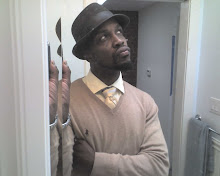Confront mental illness with courage, candor - and care
By Errol Louis - New York Daily News
A great many of the worst ills afflicting inner-city communities - crime, violence, despair - are rooted in mental and emotional illness that hasn't been recognized or treated.
Yet nearly a decade into the 21st century, tragically, there's still a stigma in many communities about acknowledging the need for medication or counseling. Too many people refuse to seek help - for themselves or for loved ones - for fear of being written off as "crazy."
But silence can be deadly. Last November, I wrote about the tragic case of Khiel Coppin, a mentally troubled 18-year-old from Bedford-Stuyvesant who died in a hail of bullets fired by cops who thought - mistakenly - that the agitated teenager was armed.
And a series of Daily News editorials has documented the fact that New York City sees five or six cases like Coppin's every year: instances in which unstable people lash out at others or wind up in violent confrontations with the police.
A panel created by Mayor Bloomberg and ex-Gov. Eliot Spitzer has issued a report calling for common-sense measures to handle extreme cases. It's clear, for instance, that 911 operators need a better way to convey accurate information about emotionally troubled people to police before they respond to a disturbance.
But government can only do so much. The real change has to happen within neighborhoods and families, where even easily treated problems too often get hushed up.
In a remarkable act of personal and professional bravery, my friend Terrie Williams - a high-flying publicist whose blue-chip client list includes Fortune 500 corporations and A-list celebrities like Chris Rock - recently published a book, "Black Pain," that details her battle with depression.
"As far as my colleagues and clients were concerned, the work got done and got done well," she writes, recounting the days she criss-crossed the country representing the likes of Miles Davis and Eddie Murphy - only to come home and lapse into fear, apathy and food binges.
Friends saved Williams - she'd become numb and paralyzed by depression, huddling in a dark room for three days - and got her to a psychiatrist who prescribed medication to get her body chemistry back in order.
A magazine article she wrote about the ordeal drew 10,000 responses, mostly from people who'd been silently struggling with their own issues, terrified of revealing the secret.
Williams writes: "I am fully engaged, day by day, in the fight to feel, to have fear and sadness rather than anxiety, and to become reacquainted with calm, vibrancy and joy. And I will not rest until you join me in that fight."
We need many more evangelists for straight talk about depression to join her. By one conservative estimate, America loses up to $33 billion in work days lost by employees battling the disease.
In many cases, untreated depression leads to "self-medicating," in which people use alcohol, drugs, food or sex to stabilize their moods, when what's really needed is a combination of counseling, education and prescription meds.
The fact there are more mentally ill Americans in prison than in all our psych wards is a scandal and a tragedy - and a sign we need to rethink the connections between right and wrong and health and illness.
It's up to all of us to begin imagining a smarter and more compassionate system. Cops and jails should not be the first and primary response in communities where illness runs rampant.
Immediate Code Erfahrungen: Effizientes Programmieren leicht gemacht
-
Immediate Code: Eine revolutionäre Plattform für den Kryptohandel 1.
Einleitung Der Kryptomarkt boomt und immer mehr Menschen möchten von den
Chancen profi...
2 years ago


No comments:
Post a Comment